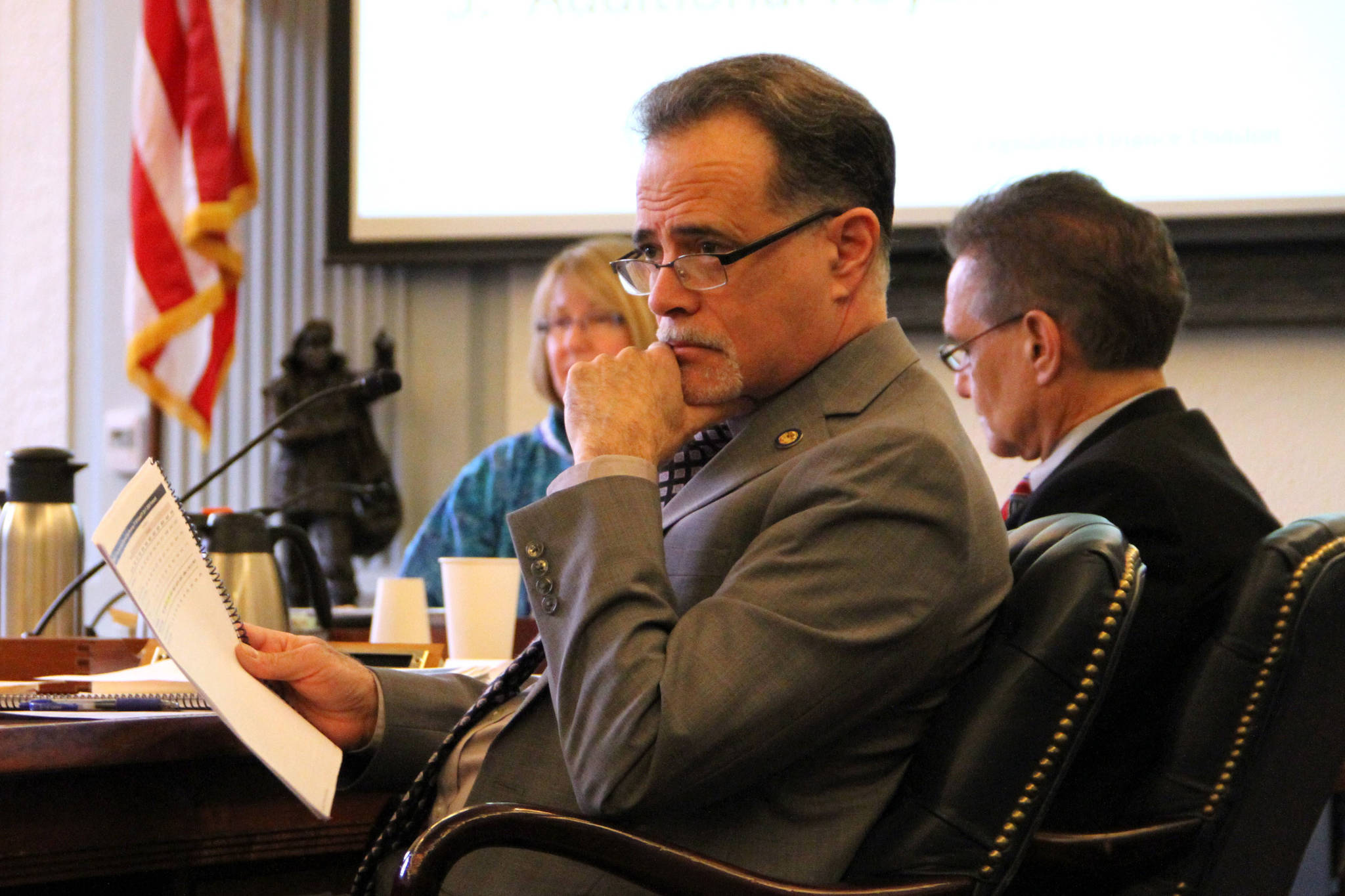Two weeks into the Special Legislative Session, the Alaska Legislature has finally sent a crime bill to the governor’s desk for approval. After several weeks of debate and the formation of a conference committee by the two chambers, a final version of House Bill 49 passed the House of Representatives 36-2 May 20 and passed the Senate unanimously yesterday. Gov. Mike Dunleavy said in a press availability session yesterday that he intends to sign the bill into law.
HB 49 addresses several areas of public safety and criminal justice and effectively repeals and replaces SB 91, a crime bill from 2017 that has long been criticized by politicians and members of the public for not being tough enough on criminals, and in some instances causing crime rates to increase. Most of the reforms in HB 49 come in the form of harsher sentences for sex crimes, drug possession and drug distribution. The bill makes it a crime to be in possession of tools used in motor vehicle theft and aggregates instances of theft that occur within five years of each other for the purposes of sentencing. The bill also eliminates marriage as a defense in certain cases of sexual assault and requires anyone registered as a sex offender in another state to also register in Alaska upon arrival.
Sen. Peter Micciche, R-Soldotna, whose campaign platform was based largely on criminal justice reform, said that the legislation marks a victory for Alaskans who have been pushing for increased public safety since the election last November.
“I’m proud to say that (SB 91) has been repealed, and we cast a wide enough net to deal with all the issues Alaskans were facing with crime,” Micciche said.
The final version of HB 49 passed the House of Representatives last week, but the members of the Senate gave themselves time to review the legislation before voting on it. Micciche said that while most of the changes made by the conference committee were similar to those in the Senate’s version of the bill, it was important to look over the text one last time before sending it to the governor.
“We just wanted to make sure that there were no unintended consequences in the bill,” Micciche said. “There’s no question that it covered all the bases.”

